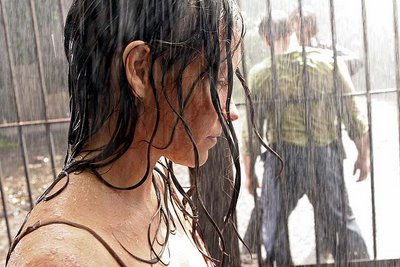 On the last day of 2008, I predicted (after watching a bunch of January and February screeners) that 2009 was going to be a very good year in TV. And that's exactly how things turned out.
On the last day of 2008, I predicted (after watching a bunch of January and February screeners) that 2009 was going to be a very good year in TV. And that's exactly how things turned out. I don't know that 2010 will live up to that, but I've been watching screeners for the past few weeks(*), plus I know we have things like the final season of "Lost" - which may or may not disappoint, but is sure to not be dull - and HBO's new "The Pacific," "Treme" and "Boardwalk Empire," FX's "Justified," AMC's "Rubicon" (and, of course, "Breaking Bad") and more, all coming up.
(*) The four shows pictured above - "Life Unexpected" on CW, "Human Target" on Fox, "Chuck" season 3 and "Caprica" - will be premiering in the first few weeks of the year, and so far I've liked them all to varying degrees.
So after another relatively quiet week of TV, things are gonna start getting really interesting as of January 10th. Looking forward to seeing how it goes.
Happy New Year, everybody. Stay safe.






















